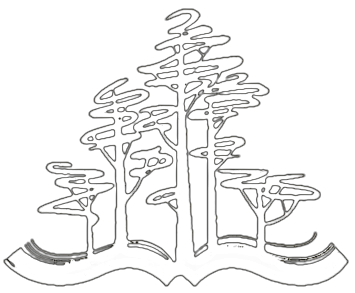Summer School on the Russian Literature. 2018.
Vol. 14. № 2-3
The article compares narrative strategies of the initial variant of the first book of I. F. Bogdanovich’s poem „Dushenka“ and the first edition of this poem. Techniques of involving a reader in the text are analyzed.
Key words: Russian literature in 18 century, I. F. Bogdanovich, „Dushenka“, dialogue with a reader, image of the audience.
Key words: Russian literature in 18 century, I. F. Bogdanovich, „Dushenka“, dialogue with a reader, image of the audience.
Olga Balakerskaya
I.F. Bogdanovich's poem „Darling“
On the problem of forming a dialogue with the reader in the second half of the XVIII century
On the problem of forming a dialogue with the reader in the second half of the XVIII century
The article is dedicated to „The Last Songs“ — the last collection of poems published by N. A. Nekrasov. This book still has not been the object of monographic research from the point of view of poetics. Revealing and analysis of the motive frame of the book let us make some remarks on semantic and emotional strain of several texts, as well as on general principles of construction of the book and its perception by contemporaries.
Keywords: N. A. Nekrasov, collection of poems „The Last Songs“, poetic motive, the author’s strategy.
Keywords: N. A. Nekrasov, collection of poems „The Last Songs“, poetic motive, the author’s strategy.
Sofia Bolenko
The main motives of N. A. Nekrasov's collection „The Last Songs“
The image of Grand Duchess Aleksandra Feodorovna, a daughter of the legendary Queen Louise of Prussia and Vassily Zhukovsky’s student since 1817, lies at the center of the poet’s diary entries and oeuvre during his stay in Berlin in the winter and spring of 1820–1821. His worship of the Grand Duchess assumes the form of a genuine ritual borrowed by him from a Prussian Romantic court tradition. Thus, on April 6, during vespers, the poet sees in the Grand Duchess’s hands a special prayer book, „her mother’s letters“, and admires the Grand Duchess’s „beautiful, touching thought“ of turning her memories of the Queen „into a prayer, into the purification of the soul, into penitence“. In the present article, I identify the actual source and content of this sacred epistolary „prayer book“ (a compilation of letters made by the Queen’s friend and biographer Carolina von Berg and entitled „The Heavenly Remembrances“) and examine the role of the Prussian national myth of Queen Louise in the formation of Zhukovsky’s transnational (German-Russian) poetic „religion“.
Keywords: Vassily Zhukovsky, Grand Duches Aleksandra Feodorovna, Prussian court tradition, poetic religion, myth of Queen Louise, transnational romanticism.
Keywords: Vassily Zhukovsky, Grand Duches Aleksandra Feodorovna, Prussian court tradition, poetic religion, myth of Queen Louise, transnational romanticism.
Ilya Vinitsky
„Louisiada“ by V. A. Zhukovsky
From the history of a prayer book
From the history of a prayer book
The article presents the results of work on the letter A. N. Pleshcheev to F. M. Dostoevsky of August 4 <1858>. The letter contains information about some writer who deceived the owner of the „Russkoe Slovo“ magazine — Count G. A. Kushelev-Bezborodko. This writer sold a composition to the „Russkoe Slovo“ magazine, then he re-sold the same composition to another periodical. The archival documents, memoirs and the epistolary inheritance of writers led us to the hypothesis that in the Pleshcheev’s letter it says about one of the first employee of the „Russkoe Slovo“ magazine — Apollon Grigoryev.
Keywords: A. А. Grigoryev, A. N. Pleshcheev, F. M. Dostoevsky, Count G. A. Kushelev-Bezborodko, the „Russkoe Slovo“ magazine.
Keywords: A. А. Grigoryev, A. N. Pleshcheev, F. M. Dostoevsky, Count G. A. Kushelev-Bezborodko, the „Russkoe Slovo“ magazine.
Oksana Vorobyova
„Kushelev, for example, is being swindled in the most godless way“
Hypothesis for one phrase
Hypothesis for one phrase
The article shows the results of processing of number of works of first part of XIX century Russian literature by „stylo“ function of the same named R package. The author list includes A. F. Veltman, F. M. Dostoevsky, V. I. Dal’, A. A. Bestuzhev-Marlinsky and others.
Keywords: Digital Humanities, stylo, stylometry, A. F. Veltman, F. M. Dostoevsky, A. A. Bestuzhev-Marlinsky, 19th Century Russian Literature.
Keywords: Digital Humanities, stylo, stylometry, A. F. Veltman, F. M. Dostoevsky, A. A. Bestuzhev-Marlinsky, 19th Century Russian Literature.
Anna Gracheva
Veltman or Dostoevsky?
Stylometric analysis of several novels of the XIX century
Stylometric analysis of several novels of the XIX century
The article examines the influence of the poetics of „The Adolescent“ by Dostoevskii on the story by M. Ageyev „Novel with Cocaine“. Ageyev deliberately reinterprets one of the main fragments of the novel by Dostoevsky. The function of these two scenes is analyzed in connection with the function of idea, dream
and memories.
Keywords: M. Ageyev (M. L. Levi), F. M. Dostoevskii, „The Adolescent“, dream, idea.
and memories.
Keywords: M. Ageyev (M. L. Levi), F. M. Dostoevskii, „The Adolescent“, dream, idea.
Victor Dimitriev
Teenager Vadim Maslennikov
On the controversy with F. M. Dostoevsky in the „Novel with Cocaine“ by M. Ageev
On the controversy with F. M. Dostoevsky in the „Novel with Cocaine“ by M. Ageev
The problem of commenting of Daniil Kharms’s notebooks is in detail considered in this article. Mistakes and inaccuracies of the comment which accompanies the publication of notebooks and Kharms’s diaries in Complete works are found and presented. The names, dates, facts, events mentioned by Kharms are specified and the connection between his art and creativity is revealed.
Keywords: Daniil Kharms, notebooks, diaries, comments, Meyrink, K. Chukovsky, S. Marshak.
Keywords: Daniil Kharms, notebooks, diaries, comments, Meyrink, K. Chukovsky, S. Marshak.
Alexander Kobrinsky
On the problem of commenting on the notebooks of Daniil Kharms
The article is restored from the archive sources and deals with the problems of Olesha’s prose creation in general, including the philosophy of his creative process and history of author’s relations to different people involved in publication of his novel „Envy“, memoirs about A. N. Tolstoy and book «Избранные сочинения» (Selected works).
Keywords: Yu. Olesha, „Envy“, A. N. Tolstoy, Z. A. Nikitina, V. O. Pertsov, textual criticism, genesis, creating, memoirs.
Keywords: Yu. Olesha, „Envy“, A. N. Tolstoy, Z. A. Nikitina, V. O. Pertsov, textual criticism, genesis, creating, memoirs.
Andrey Kokorin
New materials for the creative history of Yu. K. Olesha's prose
The article is dedicated to the methods of quantitative analysis, which help to consider the system of the social relations and plot functions of characters of various plays. The research is based on the methods described in V. A. Sapogov’s article „Some characteristics of dramaturgic construction of Ostrovsky’s comedy 'Forest'“ and the quantitative characteristics of Sapogov such as busyness, frequency of emergence, mobility, rank and probability of characters’s meetings. In this article methods of the quantitative analysis are applied to some plays of the 1870-s, namely „Forest“ and „Wolves and sheep“ by A. N. Ostrovsky, „Loop“ and „Topic of the day“ by N. A. Potekhin and „Mayorsha“ by I. V. Shpazhinsky.
Keywords: drama, quantitative analysis, quantitative characteristics, formal methods, table-protocol, density, busyness, relative frequency of emergence, mobility, rank, probability of meetings.
Keywords: drama, quantitative analysis, quantitative characteristics, formal methods, table-protocol, density, busyness, relative frequency of emergence, mobility, rank, probability of meetings.
Ekaterina Kolevatova
Quantitative analysis and prospects of studying the Russian drama of the XIX century
(based on plays from the 1870s)
(based on plays from the 1870s)
The article gives the explanation of the conflict that erupted between Andrey Bely and F. Sologub in 1918. The contradictions that have caused the quarrel between the writers are revealed, the critical works of both authors are the subject to analysis. The main focus is made on articles of A. Bely, „The decaying masks“ and „Dalai lama from Saposchok“.
Keywords: journal controversy, critical article, dialectics, F. Sologub, Andrey Bely.
Keywords: journal controversy, critical article, dialectics, F. Sologub, Andrey Bely.
Andrey Ljustrov
The chiaroscuro of Andrei Bely
Two articles about the collection of F. Sologub „The decaying masks“
Two articles about the collection of F. Sologub „The decaying masks“
In the article is published for the first time a review by N. S. Leskov on the book by N. A. Lebedev, devoted to Metropolitan Makarii (Bulgakov). The idea of the book finds sympathy of Leskov, but its embodiment becomes a pretext for numerous criticisms.
Keywords: N. S. Leskov, review, special department of the Scientific Committee, Metropolitan Makarii (Bulgakov), N. A. Lebedev.
Keywords: N. S. Leskov, review, special department of the Scientific Committee, Metropolitan Makarii (Bulgakov), N. A. Lebedev.
Olga Makarevich
„Such an intelligent and peculiar person cannot be equally liked by everyone...“
An unknown review by N. S. Leskov on a book about Metropolitan Makarii (Bulgakov)
An unknown review by N. S. Leskov on a book about Metropolitan Makarii (Bulgakov)
The article observes the historical context of the literary plot about Western travelers coming to the USSR in the illustrated children book of 1920–1930’s. The analysis is based on several examples of children books of the period.
Keywords: journeys, travels, soviet children literature, MOPR, VOKS, Intourist.
Keywords: journeys, travels, soviet children literature, MOPR, VOKS, Intourist.
Pavel Stepanov
The travels of foreigners from the west to the „Wonderful country“
To the question of the context of the appearance of the plot in a children's illustrated book of the 1920s-1930s.
To the question of the context of the appearance of the plot in a children's illustrated book of the 1920s-1930s.
The article investigates the reception of the Andrey Bely’s creation by N. Gumilev. A number of references to articles by Bely prove their relevance in the system of Gumilev’s views, but his poetics was not approved. That’s why Gumilev compares Bely with the „barbarian“. Evaluating the poems of Bely, the critic raises the question of the development of Russian poetry and emphasizes his position as an opponent of radical innovation in poetry.
Keywords: Russian literature of the beginning of the XXth century, N. S. Gumilev, Andrey Bely, symbolism, literary criticism.
Keywords: Russian literature of the beginning of the XXth century, N. S. Gumilev, Andrey Bely, symbolism, literary criticism.
Alexandra Chaban
Why did Andrei Bely become a „barbarian“?
To the question of N. S. Gumilev's review of the book of poetry „Urna“
To the question of N. S. Gumilev's review of the book of poetry „Urna“
Contacts
summerschool@list.ru
В оформлении сайта использованы материалы Freepik.


